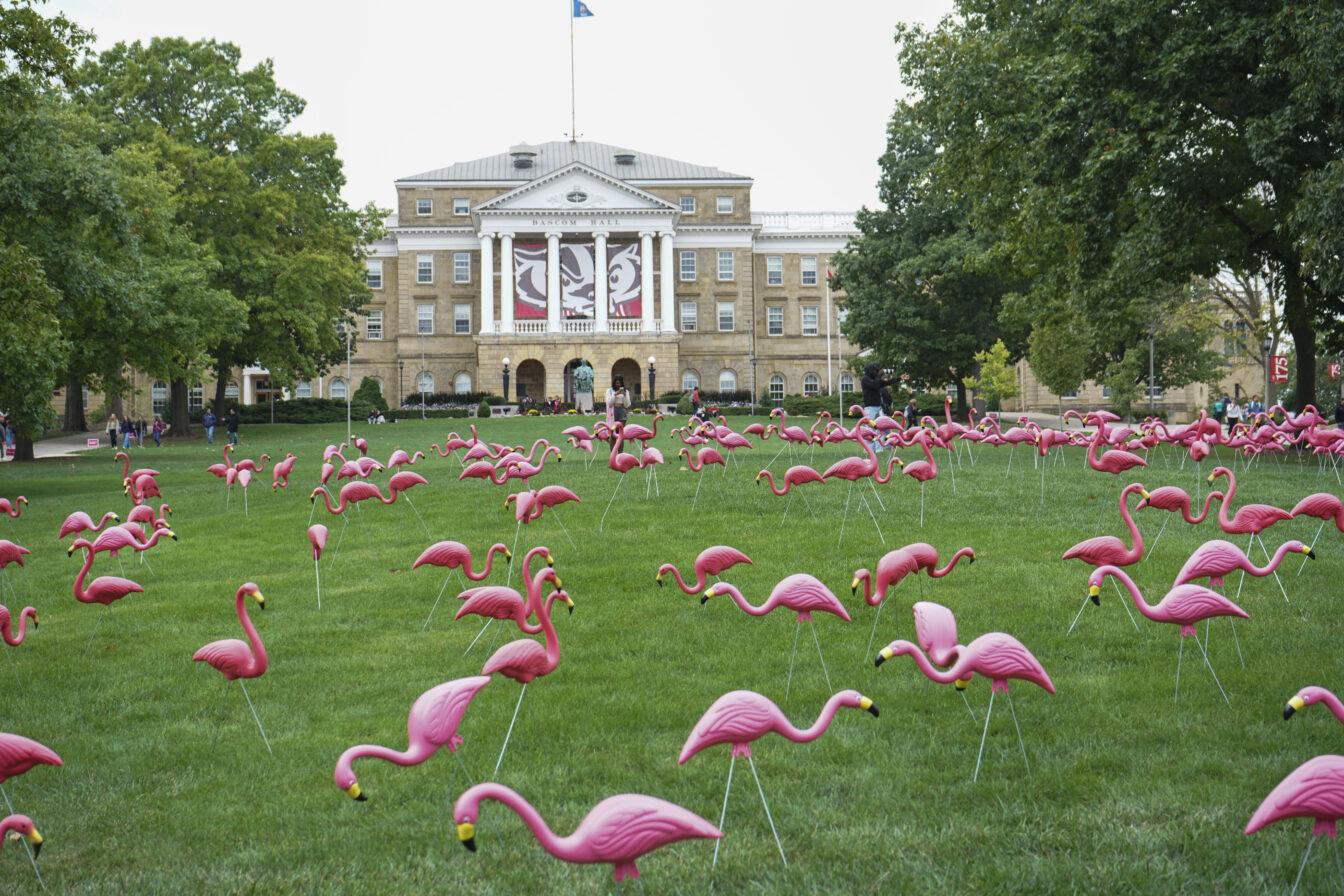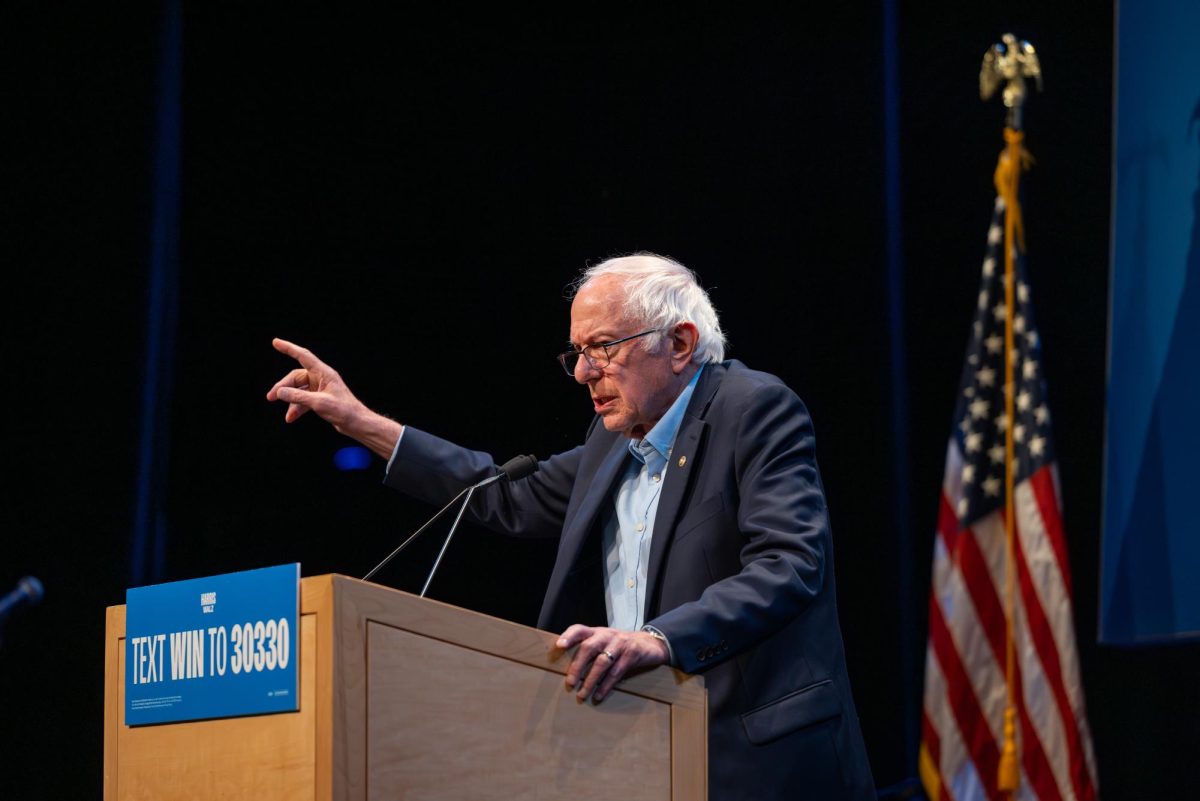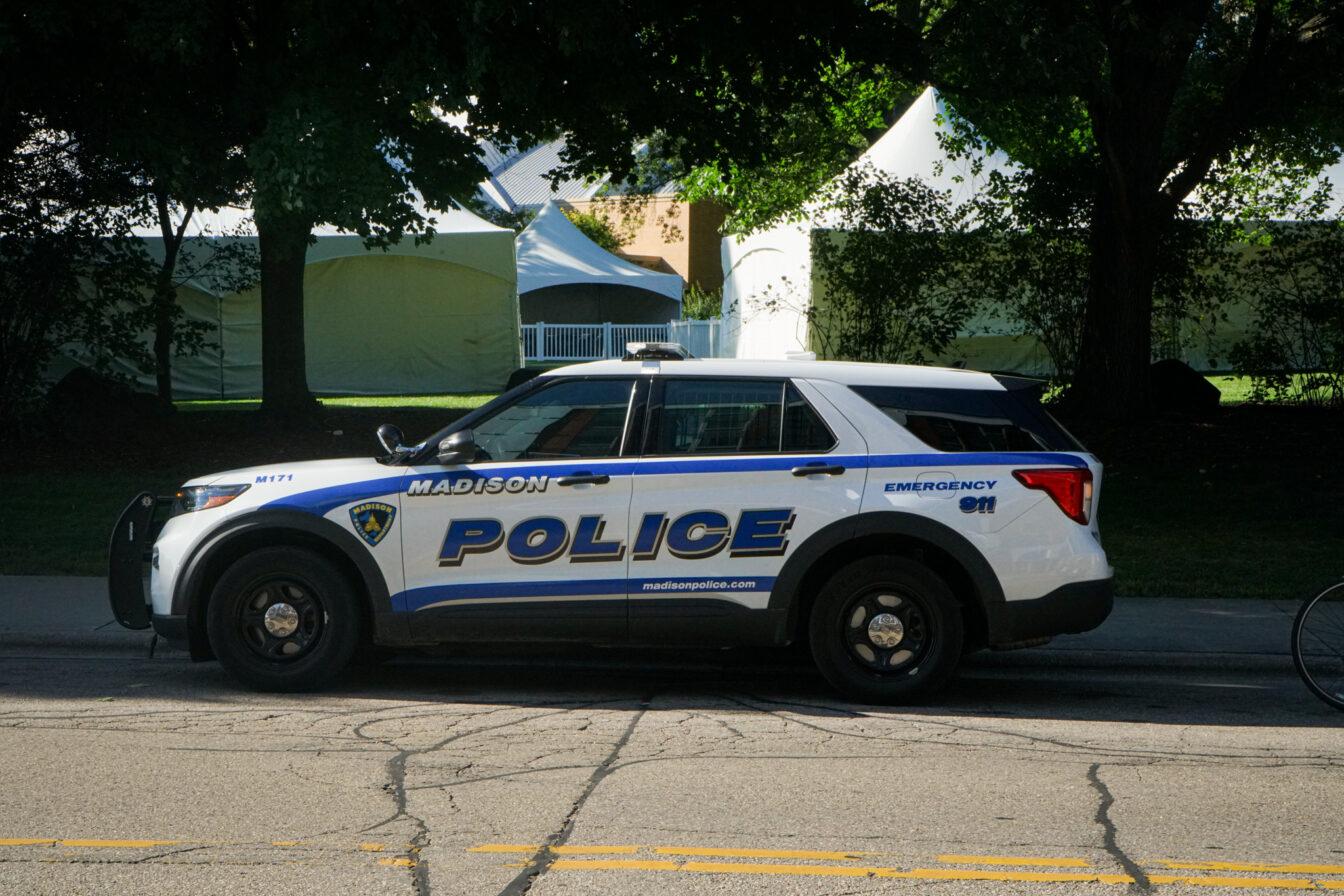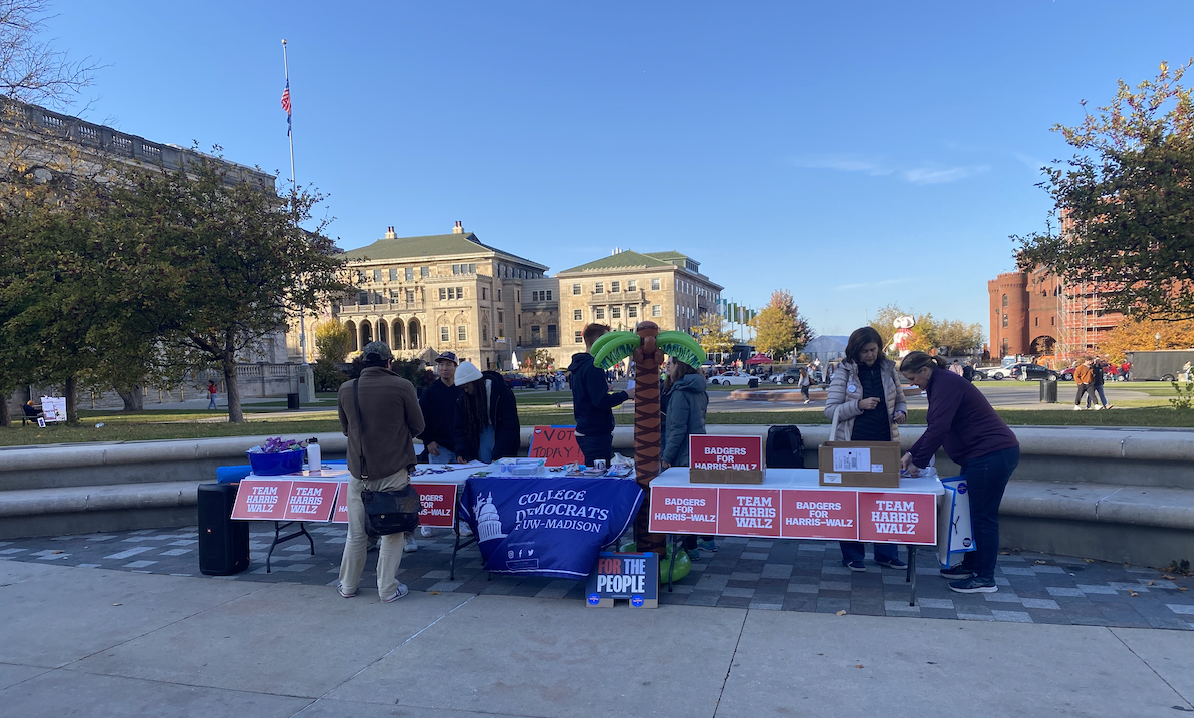Sue Bauman
Mayor, city of Madison
On Sept. 11, I arrived in the office early as I was to visit the University Research Park with Bob Brennan, president of the Chamber of Commerce. My chief of staff came in and told me he’d heard on the elevator a plane had flown into the World Trade Center. We both assumed that it was a small commuter plane that went off course.
We turned on the television in our conference room and watched in horror as the second plane approached and clearly headed into the second tower. We both realized this was not an accident, but really didn’t understand any of the implications.
I met Mr. Brennan and told him of the second plane–he had only heard about the first one. We went to the Research Park and visited with some companies, going from office to office and hearing more about the unfolding horrors of the day. Shortly after the Pentagon was struck and the first tower collapsed, my office called and we decided to return downtown as the Emergency Operations Center was being activated.
En route, we listened to the radio and heard of the second tower collapsing. We were both so upset that Bob [Brennan] turned off the Causeway at the wrong exit.
Upon my return, I was fully briefed on the additional security measures that were going into effect throughout the city, at the airport and all around. Once fully briefed, the county executive and I, along with University President [Katharine] Lyall, police and fire [department] representatives and representatives of Emergency Government held a press conference urging all residents of Madison and Dane County to remain calm. We advised [everyone] of the actions that had been taken, and urged that everyone be on alert for any sort of questionable behavior.
As mayor of Madison, my job required that I remain calm and keep the public, including the University of Wisconsin, informed of what was transpiring. Our city, fortunately, was not a target that day, [n]or since. However, the tranquility of life we felt before Sept. 11 has been permanently shattered. The entire day is etched in my mind forever.
Dale Burke
UW Police Captain
It was one of those perfect fall mornings. As I rode to work, a [public radio] news bulletin stated, “A small plane has just crashed into the World Trade Center.” There was no need for concern. Shortly after settling into my office, the radio indicated a second plane had hit the World Trade Center. I said out loud, “Oh shit.”
My stomach was in knots, but I’m a cop and feelings must be repressed in order for me to function as expected. We immediately activated the university’s crisis plan. UW Police Command Staff assembled and began developing a complex list of things that would need to be addressed. I remember thinking that my job description had just changed, probably permanently.
I never got to see or hear another news report after 11 a.m. because we were already well into our crisis mode of operation by that time. Later that night, after returning home, I was finally able to see and hear the incredible horror inflicted on so many innocent human beings. I cried.
Margaret Farrow
Lieutenant Governor
Brilliant stars against the cloudless black skies were so peaceful that our cross-country drive seemed surreal against the day’s events.
On the morning of Sept. 11, I was just three blocks from the White House.
In a whirl of disbelief, alarm, sadness, prayer and chaos I tried to take in the news–trying despite jammed phone lines to reach my family and office, to assure them I was okay, to share our shock and grief and get safely out of the city.
Late that night and into the early hours of Sept. 12, with the immediate rush behind us, we were making the long drive through six states back to Wisconsin. It seemed the skies revealed the day’s contrasts: skies that terrorists had made a battleground of war; skies so suddenly filled with F-16s flying cover, the roar of their presence conveying both the gravity of the attack on our people and the courage of those promising we would again be safe; now, the quiet skies over our travels, the skies of heaven being flooded with so many prayers that night, for peace, for consolation, for strength.
Jessica Miller
ASM chair
I woke up late that morning and rushed to class. I found out about the plane crashes from my ex-roommate as we entered the Teacher Education Building. She could barely find the words to explain what had happened. It would be hours before I knew the full story and even then I wasn’t able to truly comprehend the situation. That afternoon, I attended a Dean of Students administrators’ crisis management meeting and later sat in my office answering the phones, trying to help students find answers.
Two days later I spoke at the “Day of Mourning” rally and it was then that I cried for the first time. Shortly thereafter, I was featured in The L.A. Times, as well as on “Dateline” and “The Oprah Show” discussing “our generation’s” response. And then, without my noticing, life was back to how it once was.
And now six months have passed and I find myself still drawn to a statement from that journal entry, “The ever-present illusion of safety and peace in America has been forever shattered.”
Karen Piton
UW student
I was sleeping; my boyfriend called and said “get out of bed and turn on the TV. The World Trade Center was hit by two planes.” I got up, turned on the TV and a feeling of disbelief washed over me.
“How could this have happened,” I wondered.
I watched an interview from the Pentagon when the reporter felt a shake. I saw the towers crumble. I went to class and we were allowed to have the radio on to hear news as it came in.
That week totally threw my semester off course because for the next few weeks, instead of heading to the library every day when I got home, I watched CNN. I prayed for the trapped people and for the rescuers to have the strength to carry on.
Peter Spear
UW Provost
Although I had not yet started as provost at UW, I was in Los Angeles representing UW-Madison at a national meeting of provosts from peer universities. I had come down for breakfast and saw the images on TV.
I was stunned and in a state of disbelief. It seemed more like a scene from a movie than reality. My son lives in the East Village in New York City, fairly near the World Trade Center, and my wife was in NYC on business. In addition, my son’s girlfriend worked in the World Financial Center, across the street from the World Trade Center. I was extremely worried about all of them and tried to reach them on my cell phone. It took several hours to determine that all were well. I know that my distress was only a fraction of that experienced by those who were in the World Trade Center or who lost loved ones and friends there.
Tom Thornburgh
UW student
On Sept. 11, 2001, I walked into my 11:00 Spanish class and pulled out something to work on. I was usually among the first to arrive. Soon a few guys walked in and my attention became divided between my work and their conversation of movies or video games–normal guy talk, or so I thought. I mean–that was just what I had assumed since they were discussing airplanes crashing into skyscrapers.
It wasn’t until the rest of my classmates entered the room that I realized something had actually happened. Even then, I couldn’t believe what I was hearing. It wasn’t real to me until I saw the whole story on the news. I couldn’t shake the feeling that another terrible incident was yet to come.
With our second floor view of [the] Capitol, I couldn’t help but stare at it and imagine a plane plummeting straight into the dome.
John Wiley
Chancellor of UW-Madison
At the time of the attacks, I was in Santa Barbara, California, along with my wife and Sandy Wilcox, Marion Brown and Rudy Fleitner from the UW Foundation. We had just wrapped up a series of events for West Coast alumni and donors and were getting ready to come home. WAA President and CEO Paula Bonner had been with us too, but had left that morning on an earlier flight.
I had just finished packing when the phone rang–I think it was Marion who called–with news of the first plane collision. We turned on the television and watched with disbelief as the second plane hit the World Trade Center. As reports of the Pentagon and the other hijacked plane filtered in, we watched, shocked, not knowing how to react.
Our group met in the hotel parking lot to decide what to do. We thought we might have a better chance of getting a flight home from Los Angeles–a mistaken notion, as it turned out. We still had no idea [of] the full scope of the tragedies or the extent of the disruption to transportation systems.
On the drive back to Los Angeles, I alternated between listening to radio reports and talking by cell phone to people on campus. There was much to decide. Was campus secure? What should we tell students and the public? Should classes go on? All of these decisions were complicated by my frustration at not being there–not being able to talk in person with staff and students as the events unfolded.
On Wednesday, when we were still unsure about when airports would open, I decided to rent a car. I was lucky. I booked the last one from the hotel agency. By Thursday morning, LAX still hadn’t re-opened, and Rudy, my wife, and I started driving home.
We stopped to pick up Paula in Las Vegas, where her plane had been forced to land. We stopped in Wyoming for three hours of rest. Otherwise, we didn’t stop, getting to Madison at midnight Saturday. The drive was long and we all had so much on our minds, so many things that we wanted and needed to do. I may never have been more anxious to get back to my office and all that awaited me here.
Roger Howard
Interim Dean of Students
I had retired from the university the previous July and was camping with my wife on Sept. 11 in the Black Hills of South Dakota. The news of the events of that day passed like an ugly rumor from one hiker to another during the morning. Only gradually did it become clear to me that this story really was true.
Radio reception was spotty at best in between the hills. At the trailhead, someone had a radio with a hastily erected wire antenna strung through the trees. We stood around silently listening to the terrible events described again and again. The rest of the day was a hazy mix of impressions from the extraordinary beauty of the scenery, to more scattered pieces of static-filled radio news and campground rumor, to worried wonder about friends at the university and family scattered throughout the country.
The next few days, as we drove west through the prairies and mountains stopping in small towns for lunch and gas, we saw a flowering of flags everywhere along the roads and expressions of sympathy and solidarity hastily written on billboards and moveable letter signs.
As far away from the attacks as we all were in those back-country Western towns, I felt connected and almost embraced by the common threads of reaction visible all around us.
Andy Rubsam
UW student
I saw the Pentagon burning on television right before my Arabic class and there was quite a panic in the hall. I went to the bathroom and came back out to see what was new on TV, only to find that the World Trade Center had been hit earlier.
I think I just sort of stood there in disbelief. I thought of how many people this would affect and how much sadness there would be for so long because of it.
I went to class and during discussion, our Arabic TA, who is now back in Jordan said, “I am very sad today. Very sad.” It was interesting because he seemed to take it harder than any of the American students in the class. I think all but three of us were Americans, with different ethnic backgrounds, but we weren’t crying or sad the way he was.
Maybe we didn’t realize the magnitude of it right away, or maybe we are desensitized because of our feelings of security, but he, an Arab foreigner, was totally crushed. You could tell just from the way he talked.







